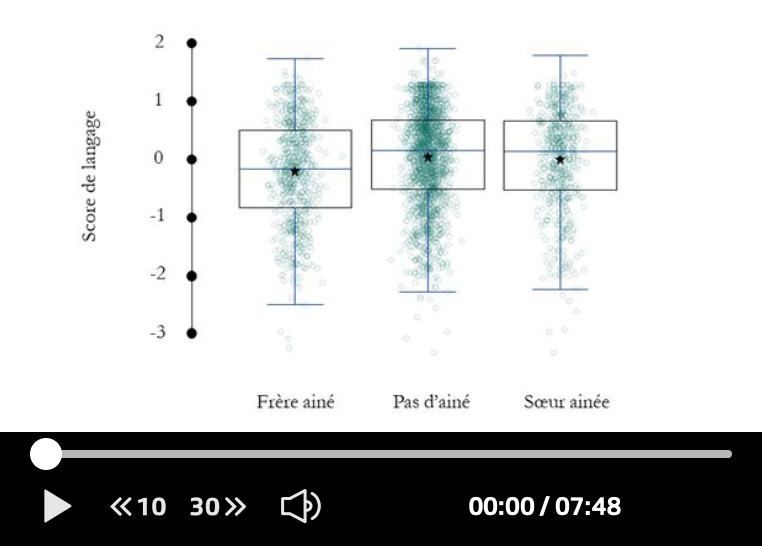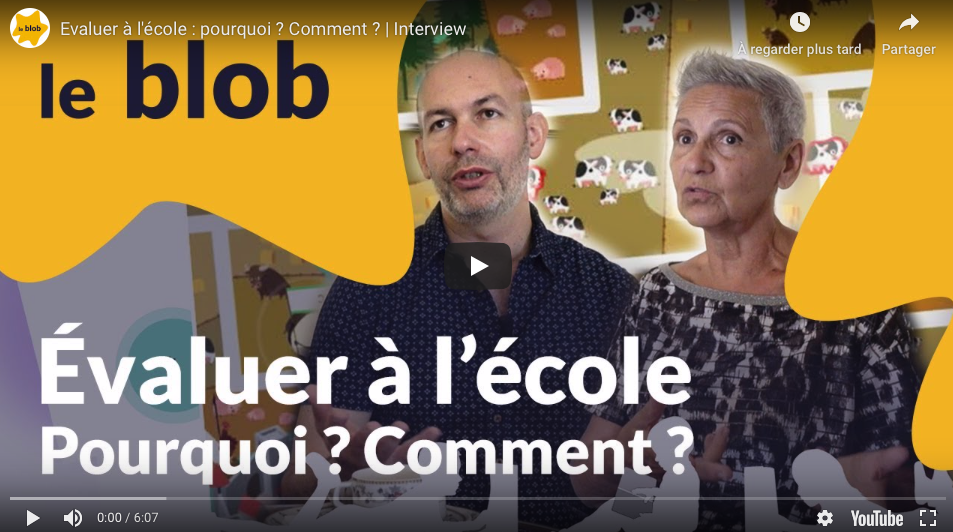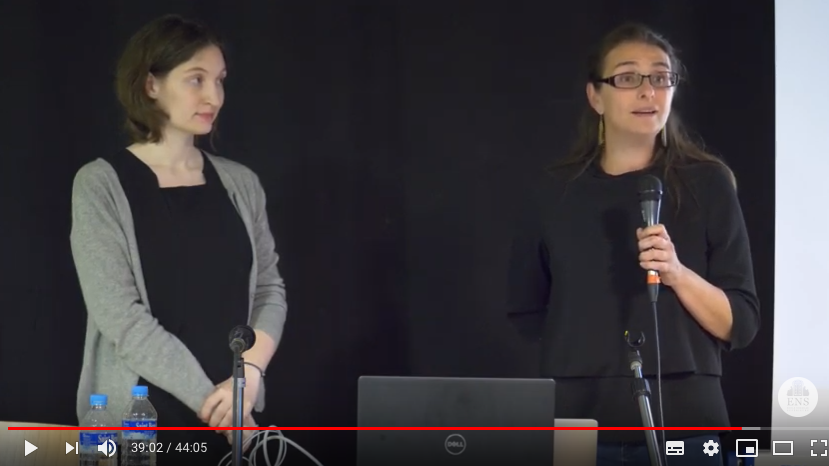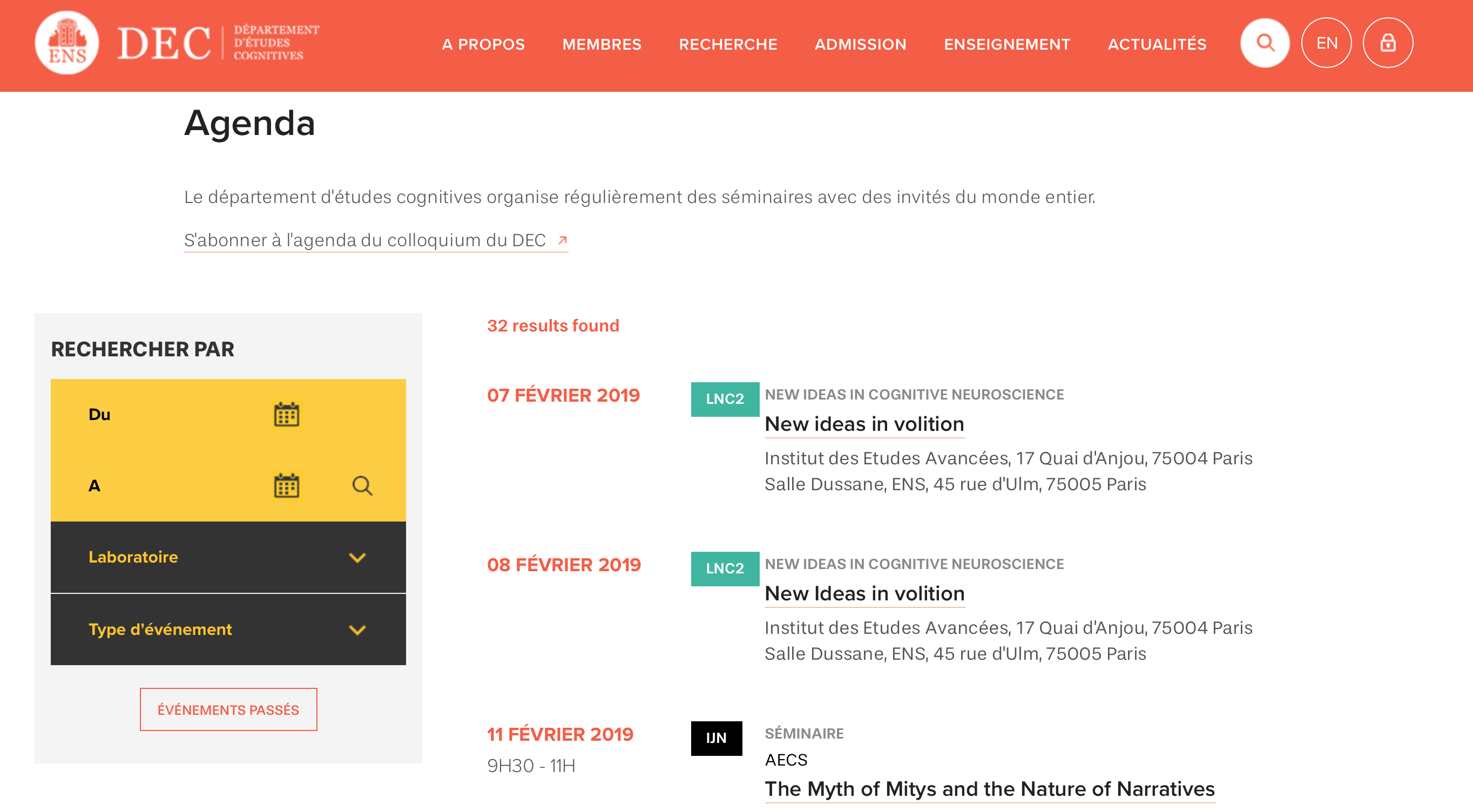A LA UNE
Anne Christophe, nouvelle Directrice adjointe Sciences de l'ENS
Directrice de recherche CNRS au sein du Laboratoire de Sciences Cognitives et Psycholinguistique, Anne Christophe est la nouvelle Directrice adjointe Sciences de l'ENS.
Elle succède à Yves Laszlo et a pris ses fonctions le 1er septembre 2019 aux côtés de Christian Lorenzi Directeur des Etudes Science à l'ENS.
Anne Christophe dirigeait le LSCP depuis plusieurs années. Alex Cristia, chargée de recherche CNRS, lui succède.
Et nouveau membre du Conseil scientifique de l'Education nationale
Anne Christophe fait aussi sa rentrée au sein du Conseil scientifique de l'Education nationale comme responsable du groupe de travail "petite enfance et outils pour la maternelle".
FINANCEMENTS
Financements ANR, l'IJN et le LSP à l'honneur
Six chercheurs du DEC ont obtenu un financement ANR :
- Nicolas Baumard (IJN/ESC) pour le projet COGHIST : Les indices de confiance interpersonelle dans les peintures et les textes digitalisés : La cognition sociale peut-elle contribuer à l'histoire culturelle ?
- Valérian Chambon (IJN) pour le projet CIRCLE : Le choix et l'information comme récompenses cognitives améliorant le niveau de contrôle.
- Paul Egré (IJN) pour le projet AMBISENSE : Accès à l'ambiguïté perceptive: mesures comportementales, métacognitives et physiologiques de la perception en situation d'incertitude.
- Claudia Lunghi (LSP) pour le projet PlaStiC Plasticité Sensoriell : Motrice et Cognitive chez l’adulte
- Peter Neri (LSP) pour le projet NewPiTCH : Outils psychométriques de nouvelle génération pour caractériser l'efficacité de l'audition et ses déficits.
- Benjamin Spector (IJN) pour le projet ProbaSem projet : Probabilistic semantics and
pragmatics.
En savoir plus : https://anr.fr/fr/1er-resultats-aapg-2019/
MEDIAS
Avoir un grand frère ralentit le développement du langage
 "Avoir un grand frère est associé à une acquisition plus lente du langage.
D'autres études avaient déjà montré quʹavoir un aîné ralenti le développement linguistique, mais en y regardant de plus près ce nʹest vrai que pour les grands
frères!"
"Avoir un grand frère est associé à une acquisition plus lente du langage.
D'autres études avaient déjà montré quʹavoir un aîné ralenti le développement linguistique, mais en y regardant de plus près ce nʹest vrai que pour les grands
frères!"
Franck Ramus, chercheur CNRS à l'ENS, coauteur de cette étude, a été interrogé par Adrien Zerbini pour l'émission sciences et santé "CQFD" de la radio Suisse La Première.
Ecouter le podcast
Ecologie : pourquoi est-ce si difficile de changer de comportement ?
 "On a tous plus ou moins conscience que nos comportements pèsent sur l’environnement et le climat. Pourtant, quand vient le moment de changer, la tâche semble parfois insurmontable. Que se passe-t-il dans notre cerveau, qui nous freine dans nos élans ?"
"On a tous plus ou moins conscience que nos comportements pèsent sur l’environnement et le climat. Pourtant, quand vient le moment de changer, la tâche semble parfois insurmontable. Que se passe-t-il dans notre cerveau, qui nous freine dans nos élans ?"
Coralie Chevallier, chercheuse Inserm au Laboratoire de Neurosciences Cognitives & Computationnelles, était l'invitée de Mathieu Vidard dans l'émission La Terre au Carré sur France Inter mercredi 28 août dernier.
Réécouter l'émission
Evaluer à l'école, pourquoi? Pour aider les élèves
 Mis en place fin 2017, le Conseil scientifique de l'Education nationale (CSEN) vise à améliorer les pratiques éducatives grâce aux résultats de la recherche. Et c'est dans cette idée qu'ont été mises en place les évaluations nationales en CP et CE1.
Celles-ci visent à identifier de manière précoce les élèves en difficulté en proposant des outils ciblés, notamment des applications sur tablette.
Mis en place fin 2017, le Conseil scientifique de l'Education nationale (CSEN) vise à améliorer les pratiques éducatives grâce aux résultats de la recherche. Et c'est dans cette idée qu'ont été mises en place les évaluations nationales en CP et CE1.
Celles-ci visent à identifier de manière précoce les élèves en difficulté en proposant des outils ciblés, notamment des applications sur tablette.
Avec Franck Ramus, psycholinguiste, spécialiste des sciences cognitives (CNRS/ENS), et Sylviane Valdois, neuropsychologue et orthophoniste (CNRS/UGA).
Voir la vidéo
VIDEO
L'origine de l'expression des émotions
 Conférence en binôme de Julie Grèzes (LNC2) et Lou Safra (Sciences Po) lors de la Nuit Sciences et Lettres sur le thème des origines qui a eu lieu à l'ENS le 7 juin 2019.
Conférence en binôme de Julie Grèzes (LNC2) et Lou Safra (Sciences Po) lors de la Nuit Sciences et Lettres sur le thème des origines qui a eu lieu à l'ENS le 7 juin 2019.
Voir la vidéo sur la chaîne youtube de l'ENS
QUELQUES PUBLICATIONS RECENTES
Bigenwald A. & Chambon V. (2019). Criminal Responsibility and Neuroscience: No Revolution Yet. Frontiers in Psychology: Theoretical and Philosophical Psychology, 10, 1406
Résumé :
Since the 1990’s, neurolaw is on the rise. At the heart of heated debates lies the recurrent theme of a neuro-revolution of criminal responsibility. However, caution should be observed: the alleged foundations of criminal responsibility (amongst which free will) are often inaccurate and the relative imperviousness of its real foundations to scientific facts often underestimated. Neuroscientific findings may impact on social institutions, but only insofar as they also engage in a political justification of the changes being called for, convince populations, and take into consideration the ensuing consequences. Moreover, the many limits of neuroscientific tools call for increased vigilance when, if ever, using neuroscientific evidence in a courtroom. In this article, we aim at setting the basis for future sound debates on the contribution of neuroscience to criminal law, and in particular to the assessment of criminal responsibility. As such, we provide analytical tools to grasp the political and normative nature of criminal responsibility and review the current or projected use of neuroscience in the law, all the while bearing in mind the highly publicized question: can neuroscience revolutionize criminal responsibility? Answering this question implicitly requires answering a second question: should neuroscience revolutionize the institution of criminal responsibility? Answering both, in turn, requires drawing the line between science and normativity, revolution and dialogue, fantasies and legitimate hopes.
Havron, N., Ramus, F., Heude, B., Forhan, A., Cristia, A., Peyre, H. & The EDEN Mother-Child Cohort Study Group (2019). The effect of siblings on language
development as a function of age difference and sex. Psychological Science. 30(9), 1333-1343. doi:10.31234/osf.io/fgpmd
Résumé :
The number of older siblings a child has is negatively correlated with their verbal skills, perhaps due to competition for parents’ attention.
The current study examined the role of siblings’ sex and age gap as moderating factors, reasoning that they affect older siblings’ tendency to
compensate for reduced parental attention. We hypothesized that children with an older sister, especially with a large age gap, have better language
abilities than those with older brothers. We reanalyzed data from the EDEN cohort (N = 1,154) and found that children with an older sister had better
language skills than those with an older brother. Contrary to predictions, the age gap between siblings was not associated with language skills, and
did not interact with sex. Results suggest the negative effect of older siblings on language development may be entirely due to older brothers, and
invite further research on the mechanisms involved in this effect.
Communiqué de presse
Latimier, A., Kovarski, K., Peyre, H., Fernandez, L. , Gras, D., Leboyer, M. & Zalla, T. (2019). Trustworthiness and Dominance Personality Traits’ Judgments in Adults with Autism Spectrum Disorder. Journal of Autism and Developmental Disorders. doi:10.1007/s10803-019-04163-1
Résumé :
Autism Spectrum Disorder (ASD) is characterized by impairments in social functioning, communication, and by the presence of repetitive behaviours and restricted interests.
Abnormal processing of faces has also been described as a neuropsychological feature of ASD. We investigated the ability to judge two personality traits in adults with
ASD in comparison to typically developed adults (TD). We used an eye tracking device to investigate the exploration of faces when participants judged the degree of
trustworthiness and dominance of synthetic faces. In sum, we found that adults with ASD were as capable as TD adults to judge personality traits of face trustworthiness
and dominance, which relied on similar exploration of the synthetic faces in the two populations.
Lebreton, M., Bavard, S., Daunizeau, J. & Palminteri, S. (2019). Assessing inter-individual differences with task-related functional neuroimaging. Nature Human Behaviour. 3, 897-905. doi:10.1038/s41562-019-0681-8
Résumé :
Explaining and predicting individual behavioural differences induced by clinical and social factors constitutes one of the most promising applications of neuroimaging.
In this Perspective, we discuss the theoretical and statistical foundations of the analyses of inter-individual differences in task-related functional neuroimaging.
Leveraging a five-year literature review (July 2013–2018), we show that researchers often assess how activations elicited by a variable of interest differ between
individuals. We argue that the rationale for such analyses, typically grounded in resource theory, offers an over-large analytical and interpretational flexibility
that undermines their validity. We also recall how, in the established framework of the general linear model, inter-individual differences in behaviour can act as
hidden moderators and spuriously induce differences in activations. We conclude with a set of recommendations and directions, which we hope will contribute to
improving the statistical validity and the neurobiological interpretability of inter-individual difference analyses in task-related functional neuroimaging.
Safra L, Chevallier C, Palminteri S. (2019), Social information impairs reward learning in depressive subjects: behavioral and computational characterization. Plos Computational Biology
Résumé :
Depression is characterized by a marked decrease in social interactions and blunted sensitivity to rewards. Surprisingly, despite the importance of social deficits in depression,
non-social aspects have been disproportionally investigated. As a consequence, the cognitive mechanisms underlying atypical decision-making in social contexts in depression are
poorly understood. In the present study, we investigate whether deficits in reward processing interact with the social context and how this interaction is affected by self-reported
depression and anxiety symptoms. Two cohorts of subjects (discovery and replication sample: N = 50 each) took part in a task involving reward learning in a social context with
different levels of social information (absent, partial and complete). Behavioral analyses revealed a specific detrimental effect of depressive symptoms, but not anxiety; on
behavioral performance in the presence of social information, i.e. when participants were informed about the choices of another player. Model-based analyses further characterized
the computational nature of this deficit as a negative audience effect, rather than a deficit in the way choices of others and rewards are integrated in decision making. To conclude,
our results shed light on the cognitive and computational mechanisms underlying the interaction between social cognition, reward learning and decision-making in depressive disorders.
Sidarus N, Palminteri S, Chambon V. (2019).
Trading off the cost of conflict against expected rewards. Plos Computational Biology
Résumé :
Adaptive behaviour requires the continued monitoring of action and its outcomes, to detect conflicts and correct behaviour accordingly.
Conflict is considered aversive, and is typically avoided: people may choose easier tasks, or be biased by external suggestions. Conflict has
also been shown to reduce the perceived control over action outcomes, and alter the perceived valence of subsequent events. Yet, it remains
unclear whether external information could influence goal-directed decision-making, and whether response conflict could impact instrumental learning.
The present study investigated these questions by embedding irrelevant flankers within a reversal learning task, with intermixed free and instructed
trials. Results showed that participants learned to adapt their choices to maximize rewards. Nevertheless, participants were still biased by flanker
stimuli, and were more likely to choose to follow, than to go against, the flankers’ suggestions. The perceived cost of being in conflict with an
irrelevant suggestion can sometimes trump the evaluation of internal value representations. Adapting computational models of reinforcement learning
allowed us to assess the influence of response conflict on the decision and on learning. Modelling results showed that the cost of conflict was
traded-off against expected rewards, such that conflict was avoided when evidence for the conflicting option was weak. Turning to the learning
phase, we found that instructed choices were associated with lower learning rates than free choices. Learning rates were further reduced when
there was conflict between instructions and subjective beliefs. However, there was no robust evidence that conflict between actions and external
distractors influenced learning. Our results show that external information can interfere with value-based decision-making, but that only some
types of conflict affect instrumental learning.

